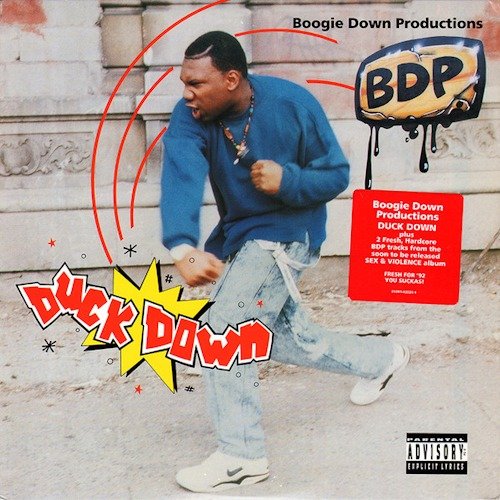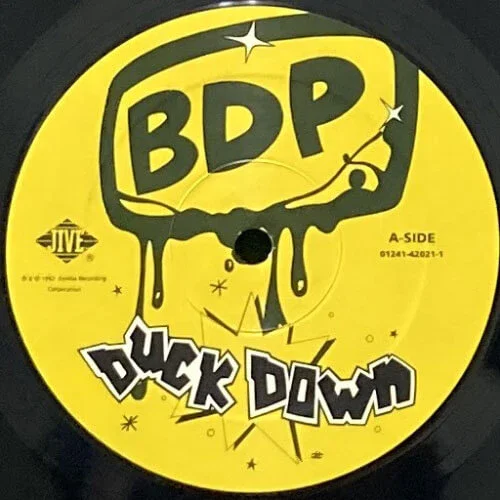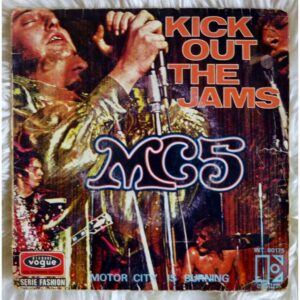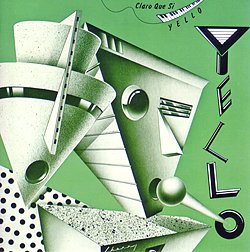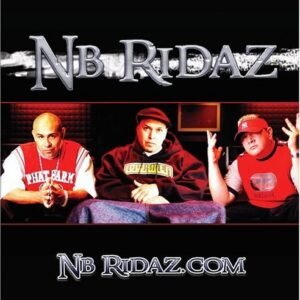Boogie Down Productions and KRS One – Duck Down
Description
KRS-One began his recording career as one third of the hip hop group Boogie Down Productions, or BDP, alongside DJ Scott La Rock and Derrick “D-Nice” Jones. Additionally, KRS-One had taken offense to “The Bridge”, a song by Marley Marl’s protege, MC Shan (KRS-One later reconciled with Marley Marl, producing an album with him in 2007 titled Hip Hop Lives). The song could be interpreted as a claim that Queensbridge was the monument of hip-hop, though MC Shan has repeatedly denied this claim. Still, KRS-One “dissed” the song with the BDP record “South Bronx”. A second round of volleys ensued with Shan’s “Kill That Noise” and BDP’s “The Bridge Is Over”. KRS-One, demonstrating his nickname “The Blastmaster”, gave a live performance against MC Shan, and many conceded he had won the battle. Many believe this live performance to be the first MC battle where rappers attack each other, instead of a battle between who can get the crowd more hyped.
Parker and Sterling decided to form a rap group together, initially calling themselves “Scott La Rock and the Celebrity Three”. That was short-lived, however, as the two peripheral members quit, leaving Parker (now calling himself KRS-One) and Sterling. They then decided to call themselves “Boogie Down Productions”. “Success is the Word”, a 12-inch single produced by David Kenneth Eng and Kenny Beck, was released on indie Fresh/Sleeping Bag Records (under the group name “12:41”) but did not enjoy commercial success.
Boogie Down Productions released their debut album Criminal Minded in 1987. Scott La Rock was killed in a shooting later that year, after attempting to mediate a dispute between teenager and BDP member D-Nice and local hoodlums.
During this time KRS-One also gained acclaim as one of the first MCs to incorporate Jamaican style into hip-hop, using the Zung gu zung melody, originally made famous by Yellowman in Jamaican dance halls earlier in the decade. This is particularly evident in the song titled “Remix for P is Free”. Dancehall influence is also very prominent in the BDP hit “The Bridge is Over”, which uses the same melody as Super Cat‘s 1986 dancehall hit “Boops” and lyrical inflections in a Jamaican style. KRS-One is credited as one of the more influential figures to bridge the gap between Jamaican music and American hip-hop.
Following the fatal shooting of Scott La Rock in 1987, KRS was determined to continue Boogie Down Productions through the tragedy, releasing the album By All Means Necessary in 1988. He was joined by beatboxer D-Nice, rapper Ramona “Ms. Melodie” Parker (whose marriage to Kris would last from 1988 to 1992), and Kris’s younger brother DJ Kenny Parker, among others. However, Boogie Down Productions would remain KRS’ show, and the group’s content would become increasingly political through the subsequent releases Ghetto Music: The Blueprint of Hip Hop, Edutainment, Live Hardcore Worldwide and Sex and Violence.
KRS-One was the primary initiator behind the H.E.A.L. compilation and the Stop the Violence Movement; for the latter he would attract many prominent emcees to appear on the 12-inch single “Self Destruction“. As KRS adopted this “humanist”, less defensive approach, he turned away from his “Blastmaster” persona and towards that of “The Teacha”, although he has constantly used “Blastmaster” throughout his career.


